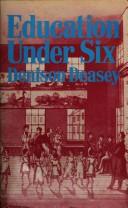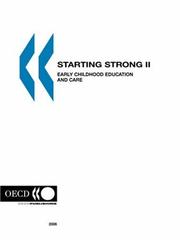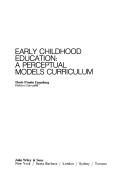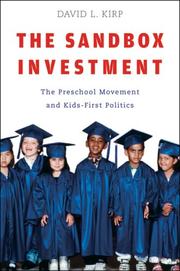Book
ISBN: 087207160X Year: 1989 Publisher: Newark International reading association
Abstract | Keywords | Export | Availability | Bookmark
 Loading...
Loading...Choose an application
- Reference Manager
- EndNote
- RefWorks (Direct export to RefWorks)
Education, Preschool --- -Language arts (Preschool) --- English language --- -Report writing --- -Language arts --- Language arts (Preschool) --- Children --- Infant education --- Prekindergarten --- Preschool education --- Early childhood education --- Nursery schools --- Research paper writing --- Research report writing --- Term paper writing --- Authorship --- Germanic languages --- Parent participation --- Composition and exercises --- Study and teaching (Preschool) --- Study and teaching --- Education (Preschool) --- -Parent participation --- Report writing --- Language arts --- Parent involvement in preschool education --- Parent participation in preschool education --- Parental involvement in preschool education --- Parental participation in preschool education --- Exercises --- Rhetoric
Book
ISBN: 3407570171 Year: 1978 Publisher: Weinheim Beltz
Abstract | Keywords | Export | Availability | Bookmark
 Loading...
Loading...Choose an application
- Reference Manager
- EndNote
- RefWorks (Direct export to RefWorks)
Educational sociology --- Television in preschool education --- Education, Preschool --- Education and sociology --- Social problems in education --- Society and education --- Sociology, Educational --- Sociology --- Education --- Aims and objectives --- Educational sociology. --- Television in preschool education. --- Sesame Street --- Evaluation.
Book
ISBN: 0700506403 1134770464 1280327804 9786610327805 0203283783 0203131762 9780203283783 9780203131763 1134770456 Year: 2002 Publisher: London ; New York : Routledge,
Abstract | Keywords | Export | Availability | Bookmark
 Loading...
Loading...Choose an application
- Reference Manager
- EndNote
- RefWorks (Direct export to RefWorks)
Annotation
Education, Preschool --- Child development. --- Activity programs in preschool education --- Activity programs in education --- Child study --- Children --- Development, Child --- Developmental biology --- Infant education --- Prekindergarten --- Preschool education --- Early childhood education --- Nursery schools --- Curricula --- Activity programs. --- Development --- Education (Preschool)
Book
ISBN: 0395187117 Year: 1975 Publisher: Boston : Houghton Mifflin,
Abstract | Keywords | Export | Availability | Bookmark
 Loading...
Loading...Choose an application
- Reference Manager
- EndNote
- RefWorks (Direct export to RefWorks)
Education, Preschool --- Education préscolaire --- Children --- Infant education --- Prekindergarten --- Preschool education --- Early childhood education --- Nursery schools --- Education (Preschool) --- Education préscolaire

ISBN: 0856640344 Year: 1978 Publisher: London Croom Helm
Abstract | Keywords | Export | Availability | Bookmark
 Loading...
Loading...Choose an application
- Reference Manager
- EndNote
- RefWorks (Direct export to RefWorks)
Education, Preschool --- -Children --- Infant education --- Prekindergarten --- Preschool education --- Early childhood education --- Nursery schools --- History --- Education (Preschool) --- History. --- -History

ISBN: 1281746959 9786611746957 926403546X 9264035451 Year: 2006 Publisher: Paris : OECD,
Abstract | Keywords | Export | Availability | Bookmark
 Loading...
Loading...Choose an application
- Reference Manager
- EndNote
- RefWorks (Direct export to RefWorks)
This review of early childhood education and care (ECEC) in twenty OECD countries describes the social, economic, conceptual and research factors that influence early childhood policy. These include increasing women’s labour market participation; reconciling work and family responsibilities on a more equitable basis for women; confronting the demographic challenges faced by OECD countries; and in particular, addressing issues of access, quality, diversity, child poverty and educational disadvantage. Starting Strong II outlines the progress made by the participating countries in responding to the key aspects of successful ECEC policy outlined in the previous volume, Starting Strong (OECD, 2001). It offers many examples of new policy initiatives adopted in the ECEC field. In their conclusion, the authors identify ten policy areas for further critical attention from governments. The book also presents country profiles, which give an overview of ECEC systems in all 20 participating countries.
Education, Preschool --- Government policy --- Children --- Infant education --- Prekindergarten --- Preschool education --- Education (Preschool) --- Early childhood education --- Nursery schools

ISBN: 0471282863 Year: 1977 Publisher: New York (N.Y.) : Wiley,
Abstract | Keywords | Export | Availability | Bookmark
 Loading...
Loading...Choose an application
- Reference Manager
- EndNote
- RefWorks (Direct export to RefWorks)
Education, Preschool --- -Children --- Infant education --- Prekindergarten --- Preschool education --- Early childhood education --- Nursery schools --- Curricula --- Education (Preschool) --- Curricula. --- -Curricula
Book
ISBN: 9789264276116 Year: 2017 Publisher: Paris : OECD Publishing,
Abstract | Keywords | Export | Availability | Bookmark
 Loading...
Loading...Choose an application
- Reference Manager
- EndNote
- RefWorks (Direct export to RefWorks)
Early childhood education and care (ECEC) can help lay the foundations for future skills development, well-being and learning. Having timely, reliable and comparable international information is essential to help countries improve their ECEC services and systems. For over 15 years, the OECD has been conducting policy analysis and gathering new data on ECEC. For the first time, this report brings together all the key ECEC indicators in one volume. It presents an exhaustive overview of ECEC systems and provision as well as trend data and information on recent reforms. The report takes a hard look at issues such as access and governance, equity, financing, curriculum, the teaching workforce and parent engagement. Key challenges for improving the ECEC sector are identified.With around 45 charts and data for the 35 OECD countries and a number of partner countries, the publication also includes a great deal of new material. It offers new data on ECEC provision and intensity of participation for children under the age of three (based on an improved typology of settings). It also presents new indicators on the profile of ECEC staff (e.g. level of qualification, teacher salary and organisation of working time) and on equity in access to ECEC. New PISA 2015 analyses help highlight the relationship between the number of years of ECEC and academic performance at age 15, and the effects of ECEC attendance on health and well-being, and mothers’ employability.
Education, Preschool --- Government policy --- Children --- Infant education --- Prekindergarten --- Preschool education --- Early childhood education --- Nursery schools --- Education (Preschool)
Book
ISBN: 0060438347 Year: 1972 Publisher: New York Harper & Row
Abstract | Keywords | Export | Availability | Bookmark
 Loading...
Loading...Choose an application
- Reference Manager
- EndNote
- RefWorks (Direct export to RefWorks)
Education, Preschool --- Children --- Infant education --- Prekindergarten --- Preschool education --- Education (Preschool) --- Sociology of education --- Early childhood education --- Nursery schools

ISBN: 0674039645 9780674039643 0674032357 9780674032354 0674026411 Year: 2007 Publisher: Cambridge, Mass. : Harvard University Press,
Abstract | Keywords | Export | Availability | Bookmark
 Loading...
Loading...Choose an application
- Reference Manager
- EndNote
- RefWorks (Direct export to RefWorks)
Kirp provides a guide to this quiet movement. He crouches in classrooms where committed teachers engage lively four-year-olds, and reveals the findings of an extraordinary longitudinal study that shows the life-changing impact of preschool.
Education, Preschool --- Children --- Infant education --- Prekindergarten --- Preschool education --- Early childhood education --- Nursery schools --- Political aspects --- Philosophy. --- Education (Preschool)

 Search
Search Feedback
Feedback About UniCat
About UniCat  Help
Help News
News